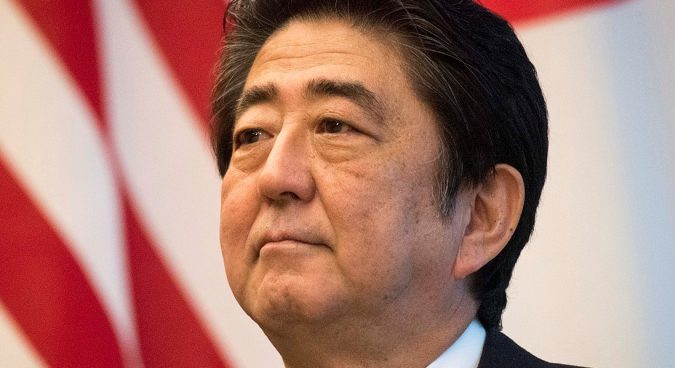
Tokyo will “increase pressure firmly” against North Korea, pledges Shinzo Abe
Re-elected prime minister says he will use Diet majority to deal with DPRK missile program
Japanese prime minister Shinzo Abe said he will “increase pressure firmly” against North Korea with the political mandate that voters gave his ruling Liberal Democratic Party (LDP) in Sunday’s general election.
Abe made the remark during a broadcast by Radio Nippon on Sunday night, with his ruling coalition already expected to win an overwhelming victory in the election.
As of noon on Monday, 461 of the chamber’s 465 seats have been counted. The center-right LDP, led by Abe, secured 283 seats, one fewer than before the election but well over a simple majority of 233.
“(We) will increase pressure firmly against North Korea and create a situation where North Korea wants to talk with us by changing their policies,” Abe said. “In order to do so, strong diplomacy is needed.”
Abe, who has served as Japan’s head of government since 2012, called a snap election on September 25 for an increased mandate to deal with several “national crises,” including the threat from Pyongyang’s continuing nuclear and missile development.
“Abe has repeatedly said Japan will do their utmost to pressure North Korea to give up its nuclear and missile development,” Masao Okonogi, emeritus professor at Keio University in Tokyo told NK News on Monday. “So the content of his victory speech is the same as before.”
But Okonogi said a confrontational speech at the UN General Assembly in September had given the prime minister a “bad reputation,” a shift that has been met with significant domestic criticism and, he said, has since been toned down.
In the speech at the UN, Abe said that “again and again, attempts to resolve issues through dialogue have all come to naught,” suggesting that Tokyo was increasingly supportive of a military solution to the DPRK’s nuclear and missile development.
Hajime Izumi, a professor at Tokyo International University, echoed Okonogi’s view that Abe’s confrontational approach towards Pyongyang will likely continue after his election victory.
“Prime Minister Abe has supported the U.S. President’s pursuing of all options available against North Korea,” Izumi told NK News. “But what would happen to Japan if the U.S. attacks North Korea? Prime Minister Abe has not explained this to the Japanese people and has to do so.”
Izumi said Japan needs to significantly upgrade its missile defenses, with the Aegis Ashore system only due to be operational by 2023 at the latest.
“Japan needs to be very well secure in the intervening period,” he said.
North Korea has launched two missiles over Japan in tests in August and September, provoking outrage from the Japanese government.
The prime minister will spend the coming month on numerous summits, welcoming U.S. President Donald Trump in Tokyo from November 5 to 7 in his first visit since his inauguration. Pyongyang’s development of nuclear weapons is likely to be one of the top items on the agenda, and the President is set to meet with the families of Japanese citizens abducted by North Korea in the 1970s.
Abe is also expected to meet Russian President Vladimir Putin during a planned trip to attend an Asia-Pacific Economic Cooperation summit scheduled for November 10 and 11.
Edited by Oliver Hotham
Featured image: Chairman of the Joint Chiefs of Staff